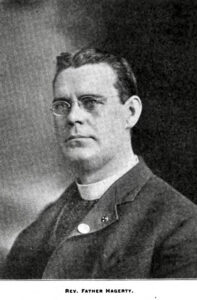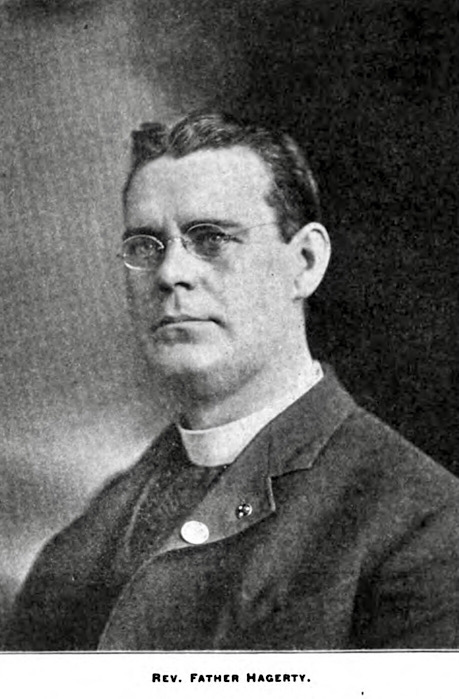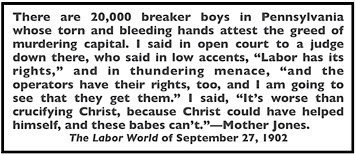 —————
—————
Hellraisers Journal – Friday October 10, 1902
Mother Jones News Round-Up for September 1902, Part I
Predicts Victory for Striking Coal Miners of Pennsylvania and West Virginia
From the Wilkes-Barre Daily News of September 3, 1902:
MITCHELL RETURNS
———-MOTHER MARY JONES A VISITOR TO THIS CITY.
President John Mitchell, of the United Mine Workers, arrived in this city yesterday afternoon, from Philadelphia, and immediately repaired to strike headquarters. He was accompanied by Louis Hammerling, of this city…..
Mother Jones, the labor advocate also arrived in town yesterday afternoon. She talked very interestingly to a News reporter about the prospects of the miners. She believes that no matter how long the struggle continues, there can be but one thing, and that is success for the miners.
[She continues:]
I hope the struggle will soon be over because there is no reason why the people of the anthracite regions should not be enjoying peace and prosperity, like the other workmen throughout the country. The operators if they have the proper conception of the exact conditions will end the disastrous strike, because no matter how long it continues, it will mean defeat for them in the end.
I do not not know when I shall return to West Virginia, but there is a probability that I may depart for those fields in a few days.
She also believes that the West Virginia miners will be successful in their efforts for better conditions.
[Photograph added.]
From The Philadelphia Inquirer of September 4, 1902:
“Mother” Mary Jones arrived here yesterday afternoon, confident that the mine workers would be victorious in their struggle.
[She said:]
There are 16,000 soft coal miners who are out on strike in the New River, Kanawha and Loop Creek districts of West Virginia. They are out to a man. The conditions in that region are appalling. It is far worse than the situation in the Pennsylvania coal fields.
“What do you think of the recent injunctions issued in West Virginia?” she was asked.
We are approaching a very dangerous crisis in the American nation. The American people are patient, but there will come a time when they will not tolerate such rule.
Disregarded the Injunction
Only last Saturday I was served with an injunction to prevent my speaking in Ohio. But it didn’t work. I have been served with enough injunctions to make a comfortable shroud to bury me in. In West Virginia they issue injunctions against everything. Injunctions are not laws. They are the work of one man. He makes it, issues it, serves it on us, tries us and then he sentences us. We disregard all of them because we know that none of them will stand the test.
“What is your idea of the termination of the strike?”
The miners are not weakening in the slightest degree. We are sure of victory and will accept no compromise. We are determined to right it out to the finish. There will probably be a settlement made before long. I cannot say when that will be. Public sentiment is growing. If it is necesary, I am sure that the American people will support the miners for another year, just as well as the operators have done. The public has never before realized what a big factor the miner is in civilization.

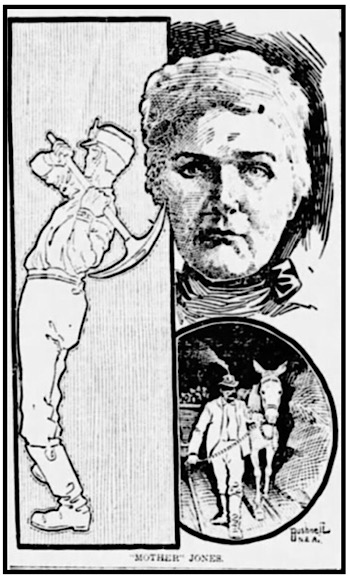
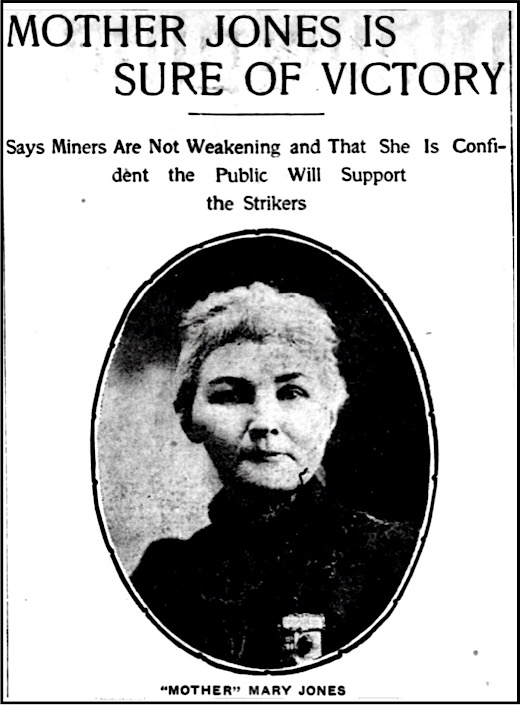
 —————
—————